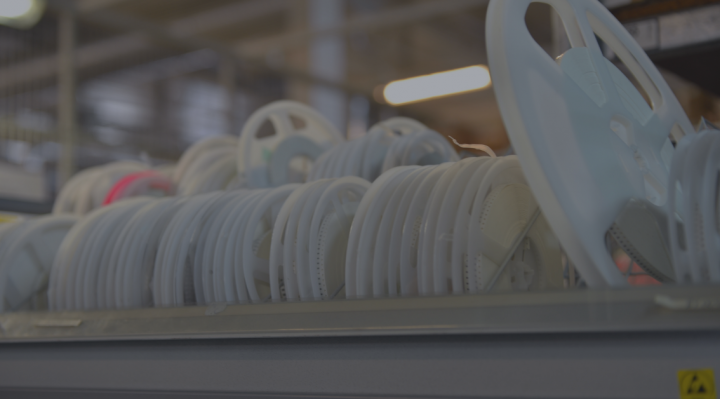GENERAL OVERVIEW
The negative trend in terms of prices, extended lead times and shortages of materials is still observed. Widespread shortages of basic materials, rising raw material prices and difficulties in transporting products continue to affect all segments of the manufacturing economy.
According to the information provided today, the situation is unlikely to improve in 2022, however, due to a higher inflation and rising interest rates, there may be seen some slowdown in demand and some stabilization towards the end of the year and in Q1 2023. Nevertheless, long-term planning in supply chains should remain the new normal in 2022 and 2023.
It is expected that the upward trend in prices will continue in 2022 and lead times to lengthen further or remain at high levels. This applies to all commodities. There is no observable downward trend in prices and lead times.
THE SEMICONDUCTOR INDUSTRY
The Semiconductor Industry Flash Report shows the total semiconductor market growing at a low double-digit rate in 2022. Sales growth is expected to slow, but remains above average, in all major semiconductor product categories.
Semiconductor producers do not anticipate shortages to improve in the nearest future as surging demand and a visible backlog of orders constrain supply.
The TSMC’s CEO told that "capacity remains tight throughout 2022." We emphasised, that demand for silicon-based computer chips has climbed sharply as businesses turn to 5G and high-performance computing. Intel announced it will invest minimum $20 billion in its two chip factories in Ohio (set to start operating in 2025), while TSMC plans to spend between $40 billion and $44 billion in capital expenditures in 2022 with focus on their investments in Arizona and Taiwan. Major investments in long-term capacity also show that chip suppliers do not think demand will go away any time soon.
Even though many suppliers plan capacity growth and investment, they are not expected to be operational until 2023 at the earliest. According to a Deloitte industry outlook, chip supply will likely remain limited throughout this year: "We expect shortages and supply chain issues to remain front and centre for the first half of the year, hopefully easing by the back half, but with longer lead times for some materials stretching into 2023, possibly well into 2023 ".
Due to high demand, shortages in supply and constraints on the semiconductor markets, it is expected that price pressure will remain on all commodities. According to an IPC survey of industry executives conducted in Q4 2021, seven in ten electronics manufacturers expect to raise prices in 2022 - due to rising costs of material and labour.
Increases of material prices are observable, especially on items, which are on allocation or have extended lead times. First insights from the manufacturers planning to increase prices in Q1 2022 are already a fact – Microchip has officially announces the price increase of up to 20%. Official letters and updated price lists from other manufacturers are expected to be follow.
Chinese New Year causes peak in demand, following a significant increase in transport costs, which translates into increases in PCB prices. High demand, COVID-19 and the current geopolitical China-US & Russia-US tensions do not support ease in freight, thus further increases are likely. Furthermore, metals have experienced a massive increase in prices in the last year. Commodities, which have increased the highest in 2021 were: lithium (150%), tin (81,8%), aluminium (55,4%), and copper (37,7%). The trends are forecasted to remain upward this year, especially if the demand remains high.
MAJOR CONCLUSIONS
The situation on the material markets is not improving. The current situation will most likely continue in all 2022 and even further until the beginning of 2023. However, inflation pressure and rising interest rates may cause slowdowns in demand and thus some stabilization may be observed.
Demand Visibility: Demand visibility (forecast/purchase orders) for a period of 18-24 months is strongly anticipated and necessary to support a smooth supply of components. Demand for materials from a handful of most challenging manufacturers, including e.g. STMicroelectronics, TI, NXP, Infineon, ON-semiconductors or Microchip should be predicted and secured in a longer perspective. A number of materials, where the offered lead time (LT) is equal to 98 weeks are observed. Thus, it is recommended not only to increase demand visibility, but also if necessary - to build a separate material purchase agreement with the vendors to secure key long lead time materials for potential future needs.
Consequences of lack of visibility: The result of lack of demand visibility/materials orders in long term coupled with extended lead times for a key number of materials may inevitably result in gaps in meeting potential future demand at the desired time. It is suggested to predominantly focus on materials that are on allocation or/and have extended lead times and are not easily obtainable.
As some materials are not available on the open market at all - potentially it will not be possible to purchase such materials at any price, anywhere. And if these scarce materials are available on the open market – their prices most often tend to be economically irrational.
Counterfeit materials: A rise in counterfeit materials from unauthorised, brokerage sources is observable. This is a critical risk, that should be taken into account, thus to secure materials in authorised sources, demand visibility in longer horizon is critical.






